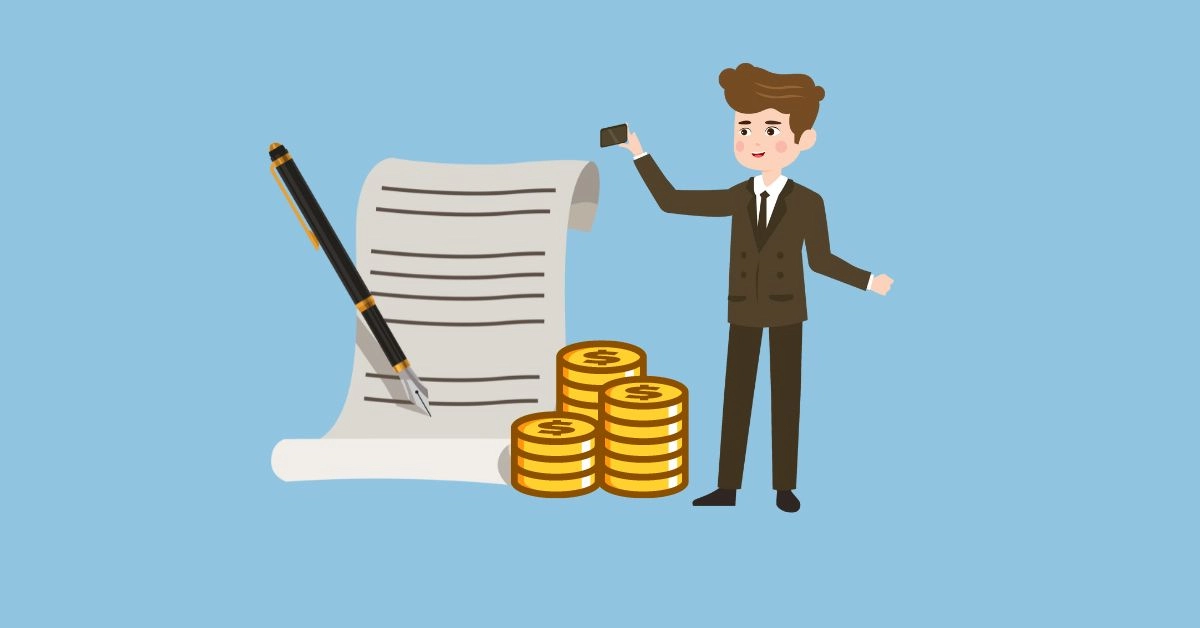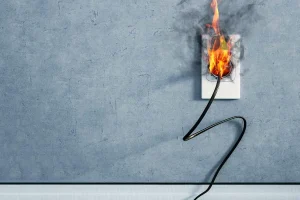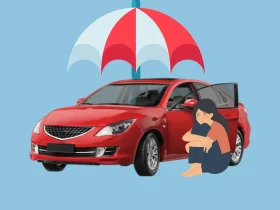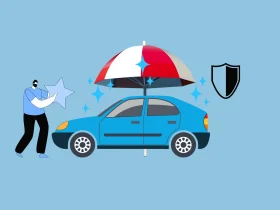Running a business comes with its fair share of risks, from natural disasters to unexpected accidents. That’s where business hazard insurance steps in—your safety net against unforeseen threats that could jeopardize your company’s future. This guide will explain everything you need to know about protecting your business with hazard insurance, ensuring you’re always prepared for the unexpected. Whether you’re a seasoned entrepreneur or just starting, understanding how this insurance works can make all the difference in safeguarding your assets.
Table of Contents
ToggleHowever, while this coverage is essential for protecting against many common risks, not all hazards may be covered, depending on your location and policy. It is crucial to review your insurance plan to ensure it addresses all potential risks your business might face.
Wha>What is Covered By Business Hazard Insurance?
v class="flex-1 overflow-hidden">Business hazard insurance typically covers a range of risks that can affect commercial buildings, similar to homes. This insurance generally includes protection against events like:
- Fire
- Theft
- Lightning
- Wind
- Power outages
- Weather-related disasters (storms, snow, or lightning)
- Explosions
- Damage caused by vehicles
- Vandalism or rioting
- Water damage from sprinkler systems (common in commercial spaces)
While this coverage helps protect businesses from financial losses due to these damages, it’s important to note that not all hazards are included in a standard business property insurance policy. Some risks may be excluded, and if a hazard isn’t explicitly listed, it won’t be covered.
For additional risks specific to your business, such as:
- Terrorist attacks
- Earthquakes
- Floods
- Sewer or water backups
- Equipment breakdown due to user error
You’ll need to purchase extra coverage to ensure protection against those hazards. Always review your policy to ensure it provides adequate coverage for your business’s risks.
What Is N>What Is Not Covered By Hazard Insurance?
insurance does not cover every potential event. It typically excludes incidents such as acts of war, terrorist attacks, earthquakes, and other natural disasters. Depending on your business’s needs, you may require additional coverage, such as flood insurance, to protect against these risks.Other insurance policies, such as general liability insurance or commercial auto insurance, may be necessary to ensure broader protection for your business.
How Much Do>How Much Does Business Hazard Insurance Cost?
ness hazard insurance cost varies based on your business type and property value. The more valuable your assets, the higher the cost of coverage. For example, a manufacturing facility with expensive equipment will pay more for a hazard insurance business than a small smoothie shop with less valuable property. As your business grows, it’s important to reassess the value of your property regularly to ensure your coverage adequately protects everything.Do you Need B>Do you Need Business Hazard Insurance For an SBA Loan?
17;re building your business from scratch, purchasing hazard insurance for your small business is likely more important than you realize. A hazard insurance policy is required if you’re applying for an SBA (Small Business Administration) loan. Like most lenders, the SBA will want proof that their financing assets are protected. This ensures that the property and investments they are helping to fund are safeguarded against potential risks.What is Hazar>What is Hazard Insurance For Small Business?
roup/conversation-turn relative flex w-full min-w-0 flex-col agent-turn">Small business hazard insurance protects businesses against specific physical risks or perils, such as fire, theft, vandalism, storms, and certain natural disasters. It covers damages to business property (buildings, equipment, furniture, or inventory) and helps with repair or replacement costs. This insurance is essential for safeguarding business assets, especially for businesses with physical locations or expensive equipment.
How Much Does>How Much Does Hazard Insurance for Small Businesses Cost?
f hazard insurance varies since every business is unique. Several factors influence how much you’ll pay for coverage, including:- Property value: The higher the value of your business property, the more you may pay for hazard insurance.
- Equipment value: Depending on your business type, insuring expensive or specialized equipment can increase costs.
- Level of coverage: Opting for replacement cost coverage, which covers the price of a new item, will cost more than insuring an item for its actual cash value. This is because property depreciates over time, and the cash value is typically lower than the replacement cost. Cash value coverage is generally cheaper but provides less comprehensive protection.
Do Home-based B>Do Home-based Businesses Need Hazard Insurance?
and business share the same space, your standard homeowners’ insurance typically includes hazard insurance to protect the structure from various risks. This coverage often extends to about $2,500 worth of business property. However, it’s essential to review your policy to ensure this coverage is sufficient. If your home-based business relies on more expensive equipment or physical assets, you may need to purchase additional insurance to protect your business fully.What is The Pur>What is The Purpose of Hazard Insurance for Businesses?
ance helps safeguard your business property—whether you rent or own it—from damage or loss caused by specific risks, such as fires, theft, or natural disasters.Adequate hazard insurance, such as SBA loans, is also important when applying for funding, as it reassures lenders that their investment is secure.
Since every business faces financial risks, having the right insurance coverage in place can reduce those risks. This lets you focus on managing and growing your business confidently, knowing you’re safeguarded against unexpected events.
Why is The SBA Asking>Why is The SBA Asking For a Hazard Insurance Policy?
usinesses to have certain insurance policies, including hazard insurance, to protect both the business owner and the business if they borrow through an SBA or EIDL loan. This helps minimize the risk for the lender when issuing a loan.The SBA can offer lower interest rate loans by ensuring that borrowers have hazard insurance because the lending agency’s risk is minimized. This benefits small business owners across the U.S. and makes obtaining SBA loans more accessible.
Other lenders may also require business insurance before approving a loan. Fortunately, working with a reliable insurance provider doesn’t have to be difficult to get the right coverage.
Does my business need h>Does my business need hazard insurance?
s needs hazard insurance, especially to secure funding like SBA or COVID-19 EIDL loans. Beyond funding, it protects your investments, such as replacing equipment or decor if damaged, like in a kitchen fire. However, if you run a home-based business with minimal assets (e.g., just a computer), your homeowner’s policy may cover it. Check with your insurer to see if a separate policy is needed.How to Get Business Haz>How to Get Business Hazard Insurance
ing for reliable business hazard insurance, Nationwide offers plans tailored to fit your company’s specific needs. You can get a free quote by calling 1-888-490-1549 or finding an independent agent near you. Learn how Nationwide’s right insurance coverage can help protect your business today.Conclusion
In c>Conclusioness hazard insurance protects your company from unexpected events like fire, theft, or natural disasters. It ensures you can recover from losses and is often required for securing loans, such as those from the SBA. Whether you run a physical store or a home-based business, having the right coverage provides peace of mind and safeguards your assets. Regularly reviewing your policy and adding extra coverage as needed ensures your business stays prepared for any challenges ahead.
FAQs
What is h>FAQsrance?
Hazard insurance is coverage that protects property (homes or businesses) against physical damage from specific risks like fire, storms, vandalism, or theft. It helps cover repair or replacement costs if such events occur.
Is hazard the same as l>Is hazard the same as liability insurance?
erally covers the structure of your home but does not include liability protection for injuries to you or your guests resulting from accidents on your property.What is proof of hazard insurance for business?
rance for businesses is a document that shows a business has active insurance coverage, protecting its property against physical damage from risks like fire, storms, vandalism, or theft. Lenders, such as the SBA, often require proof of hazard insurance to ensure that the property securing a loan is adequately protected.The common forms of proof for hazard insurance include a Certificate of Insurance (COI), which provides a summary of coverage details like policy number, limits, and expiration date. An insurance binder is temporary proof of coverage until the full policy is issued. Additionally, a policy declaration page outlines key coverage specifics and can be used to verify the policy’s existence.
What is SBA hazard insurance?
SBA hazard insurance is a type of property insurance required by the U.S. Small Business Administration (SBA) for businesses receiving SBA loans. It protects the business’s physical assets, such as buildings, equipment, and inventory, from damages caused by specific hazards like fire, storms, theft, or vandalism.
Key Points
- Requirement: SBA mandates hazard insurance to protect the collateral securing the loan.
- Coverage: This must cover the loan amount or the asset’s replacement value, whichever is lower.
- Additional Coverage: SBA may also require specialized insurance in areas prone to floods or earthquakes.
This protects the business and SBA’s investments from unforeseen property losses.









Leave a Reply